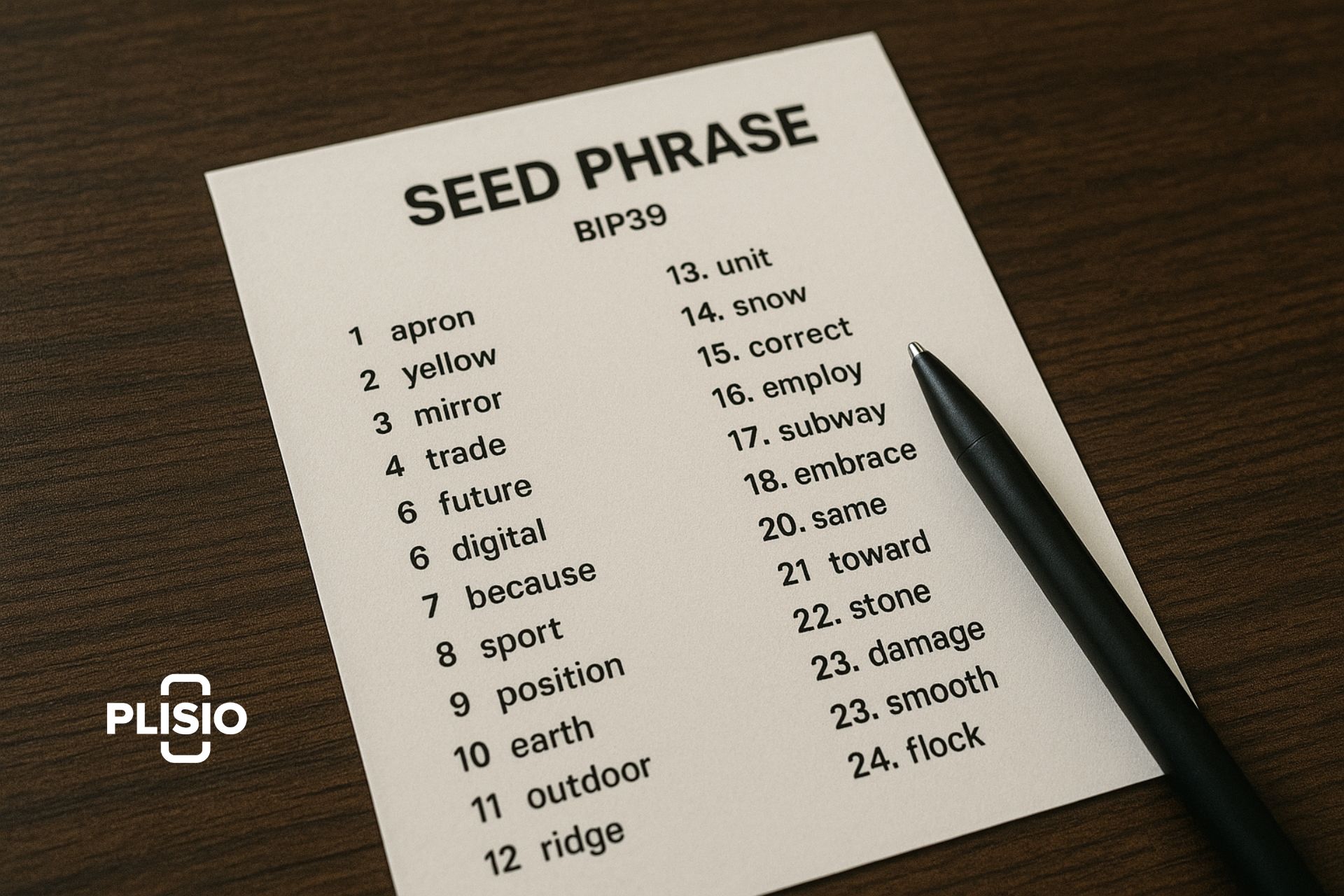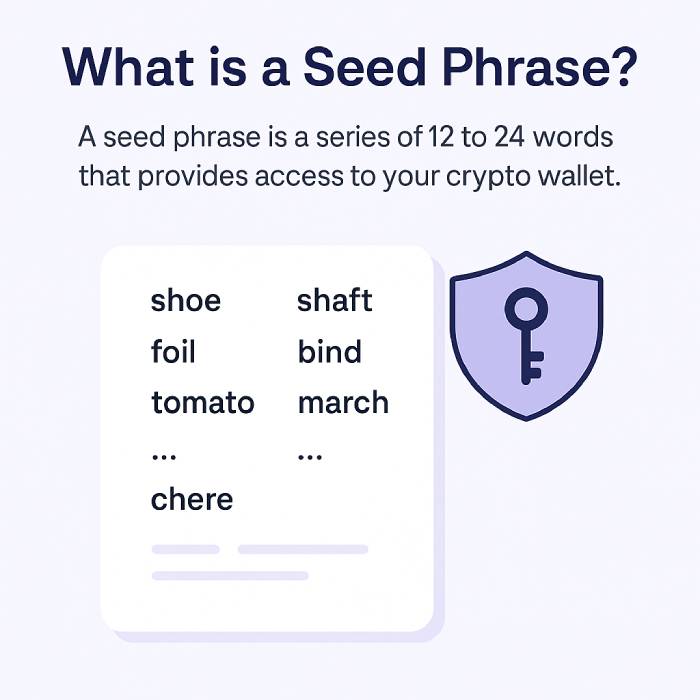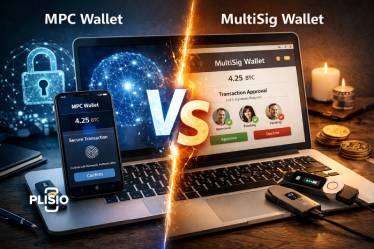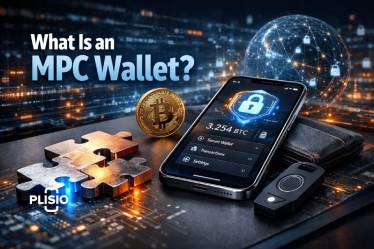What Is a Seed Phrase and Why Is It Important?

In the world of digital money like Bitcoin and Ethereum, people have a special way to control their own money directly, without needing banks or other middlemen. This is possible thanks to a technology called blockchain, which is a safe and shared system that lots of computers around the world help to keep running. It's like having a personal bank in your pocket that only you can access.
But, to keep this digital money safe, there are a few important things everyone needs to know: things like seed phrases, crypto wallets, blockchain addresses, and private keys. These might sound complicated, but they're just tools to help keep your digital coins safe.
Think of a seed phrase as a super-important password made up of simple words like “apple”, “river”, or “moon”. These words are chosen by a computer to help you protect your digital money. Because it's easier to remember words than a bunch of random numbers, this seed phrase helps you get back into your digital wallet if you ever get locked out or lose your device.
What Is a Seed Phrase?
A seed phrase, sometimes known as a mnemonic phrase or backup seed phrase, is a crucial security feature for anyone using crypto wallets. It's a string of 12 to 24 random words that holds the essential information needed to regain access to your digital currency in case your crypto wallet is lost, damaged, or suffers from a technical glitch. This tool is fundamental for self-custody of digital assets, offering a lifeline in situations like hardware malfunctions or file corruption.
Both types of digital wallets, whether online-based "hot" wallets like MetaMask (a browser extension) and Exodus (a mobile app), or offline "cold" wallets such as Ledger (a hardware device), rely on seed phrases for their recovery mechanisms. The process typically involves the wallet software generating this phrase for the user, who is then advised to write it down on paper and store it securely. This written record becomes a key to restoring access to the user's cryptocurrency holdings on the blockchain if the original device becomes inaccessible, ensuring that one's digital assets remain within reach even in the face of unforeseen issues.
How Does a Recovery Phrase Work?
In the cryptocurrency landscape, the mechanism ensuring secure access to one's assets hinges on a feature called the seed phrase or recovery phrase. This automatically generated set of words is a core aspect of the user's crypto wallet, a product of an innovative standard known as BIP39, or Bitcoin Improvement Proposal 39. While initially envisioned for Bitcoin, its application has permeated across various digital currencies, solidifying its place as a widely-adopted benchmark.
So, what exactly is this recovery phrase? When a user sets up a cryptocurrency wallet, a unique sequence, typically ranging from 12 to 24 simple words. The underlying logic is that humans find it easier to interact with and remember words than complex numeric strings.
At its heart, the seed phrase serves as a gateway to the private keys in the wallet, acting as a master key of sorts. When the wallet software commences its operations, it translates this word string into a binary seed, which then aids in the generation of private and public key pairings. While BIP39 is a renowned standard, others like BIP32 and BIP44 also come into play, collaborating with BIP39 to determine the hierarchical structure of derived addresses. This layered approach enhances transactional privacy and security, ensuring unique addresses for every transaction.
Users seldom need the seed phrase in day-to-day transactions. Typically, they would use a passcode or pin to access their software (hot) or hardware (cold) wallets, keeping the private keys hidden from public view. However, should they misplace or lose their wallet device, this phrase re-emerges as a lifeline. Having stored it securely, separate from their primary device, they can leverage it to regain access to their assets on a new, compatible device.
How to Generate a Seed Phrase
Now that we understand what a seed phrase is and its purpose, let's delve into the various methods available for generating one. Here's a breakdown of four common approaches:
- Crypto Wallets: The most straightforward method involves your cryptocurrency wallet. During the initial setup, the wallet automatically creates a seed phrase for you. This process is typically straightforward, with little to no room for customization, making it a convenient option for the majority of users who simply accept and securely store the given seed phrase without intending to alter it later.
- Applications: Certain applications go a step further by not only generating a seed phrase but also securing it within an encrypted digital "vault". This vault then acts as a safeguard for the phrase and, by extension, your digital assets. An example of such an application is Vault12, which offers features like regular security audits and automatic backups to enhance the protection of your stored assets.
- Calculators: For those preferring an offline, more hands-on approach, calculators with a "random" function can be used to create a seed phrase. This method involves generating a random sequence of characters to form your seed phrase, but it's important to note that it necessitates the use of two devices: the calculator for generation and an air-gapped computer (a computer not connected to any unsecured networks) for added security, although this method may introduce certain security risks.
- Dice Rolls: Another tactile, analog method involves using dice. This process can be as simple as rolling dice and recording the outcomes on paper, alongside a BIP39 word list to match numbers to words. While a single die can be used, opting for multiple dice enhances the randomness of the generated sequence. After completing the necessary rolls, you compile a seed phrase based on these random outcomes.

Seed Phrase vs. Private Key
In the realm of cryptocurrency security, two critical elements play pivotal roles: seed phrases and private keys, each distinct in its function yet integral to the overall safety of digital assets. A private key is akin to a digital signature, a unique string of numbers and letters that authorizes transactions from a user's public address. It acts as a secure PIN that validates and approves movements of funds, safeguarded within wallets to eliminate the need for manual entry during transactions.
Conversely, a seed phrase, often called a recovery phrase, serves as a master key to the digital wallet. It's essentially a series of words that allows users to regain access to their wallet in case it's lost or compromised. This phrase is crucial as it underlies the generation of private keys, enabling access not just to a single key but to the entire suite of a user's cryptocurrency holdings.
While both components are designed to ensure the security of digital currencies, their distinction lies in their application. The private key directly interacts with the blockchain to execute transactions, securely stored to prevent unauthorized access.
On the other hand, the seed phrase's primary role is recovery, acting as a failsafe to restore access to a wallet's contents. It is the foundation from which all private keys within a wallet are derived, offering a broad spectrum of control over one's digital wealth. This universality simplifies the user experience, ensuring a singular, consistent method to access and manage assets across different wallets, akin to having a universal charger that works with all types of phones.
Together, seed phrases and private keys form the cornerstone of cryptocurrency security, each serving a distinct but complementary role in safeguarding digital assets. Their interplay ensures that users can transact with confidence and recover their holdings should they lose access to their wallet, maintaining the integrity and accessibility of their digital wealth.
What Happens If You Lose Your Seed Phrase?
Maintaining access to your cryptocurrency heavily relies on the safety of your seed phrase. Should you misplace or forget your seed phrase, you're faced with a grave predicament. Though you can still access your crypto through your blockchain wallet, immediate action is required. Transferring your assets either to a trusted crypto exchange or another secure wallet becomes essential. Once confirmed, resetting the original wallet and procuring a new seed phrase is advised.
The paramount importance of a seed phrase can't be overstated. Surrendering it to someone or carelessly inputting it on questionable platforms can result in irreversible losses. Rather than leaving it out in the open, like on a refrigerator, it's recommended to jot it down and store it in a protected place. The resilience of the seed phrase also lies in its randomness and length, ranging from 12 to 24 words. This combination not only ensures its uniqueness but makes guessing it virtually impossible. In essence, safeguarding your seed phrase is tantamount to securing your cryptocurrency assets.
How To Keep Your Seed Phrase Safe
Preserving the security of your cryptocurrency seed phrase is paramount, and understanding the best practices for its safekeeping is crucial. Here's a consolidated guide:
Ensuring the security of your crypto seed phrase is essential to protect your digital assets. Always keep the following in mind:
- Confidentiality is Key: Never disclose your seed phrase to anyone. Access to this phrase grants total control over the associated cryptocurrency funds. Any compromise can lead to potential loss.
- Physical Copies Are Reliable: One of the most recommended methods is to create a tangible record of your seed phrase. While jotting it down on paper is traditional, using metal storage devices offers longevity. Devices that allow engraving or stamping your phrase onto metal ensure durability against wear and tear.
- Safe Storage Solutions: After creating a physical copy, its safe storage becomes the next challenge. Depending on your preference for security versus convenience, you might opt for a safe deposit box or a personal safe at home. A more secure yet complex method involves dividing the seed phrase and storing each segment in distinct locations.
- Digital Vaults for Modern Users: If you lean towards digital solutions, consider using password managers like OnePassword or LastPass. These encrypted vaults store sensitive information, including recovery phrases, providing an additional layer of security. However, always ensure you remember the main password to your password manager. Some users enhance security by adding a secondary passphrase.
- Avoid Common Digital Storage Pitfalls: Refrain from storing your seed phrase on your computer or online platforms. Hardware malfunctions or cyberattacks pose threats that can compromise your phrase's security.
If you're investing in cryptocurrency and opt for a blockchain wallet for its heightened security, diligently recording and securely storing the seed phrase is a must. This phrase is not just a backup but a gateway to your digital assets. Prioritize its safety, ensuring it doesn't fall into unintended hands.
What About Seedless Wallets?
A seedless wallet represents an innovative approach in the cryptocurrency world, offering a method to manage digital assets without the traditional reliance on a single seed phrase for account setup and recovery. Instead, these wallets utilize technologies like multi-party computation (MPC) or smart contracts to split the process of key generation and transaction signing across several parties or devices.
Historically, the concept of a seed phrase is a relatively recent addition to crypto security practices. In the initial stages of Bitcoin, for example, everything hinged on the private key for transaction authorization. Thus, seedless wallets are not a new concept but rather a modern strategy to safeguard those crucial private keys by avoiding a single point of failure.
The primary goal of seedless wallets is to alleviate the heavy security demands placed on users, akin to the responsibilities entailed by managing a seed phrase. While still requiring a higher degree of user involvement compared to standard banking practices, seedless wallets introduce technological advancements designed to mitigate the risks associated with traditional, seed phrase-dependent wallets.
Such security measures are increasingly important for institutions and decentralized autonomous organizations (DAOs) that must adhere to stringent security protocols. When properly implemented, seedless wallets can provide a secure, less burdensome alternative for individuals wary of the challenges of seed phrase custody. However, it's crucial to acknowledge that these wallets come with their own set of security considerations and compromises, which some critics argue could detract from the foundational principles of decentralization in the cryptocurrency space.




